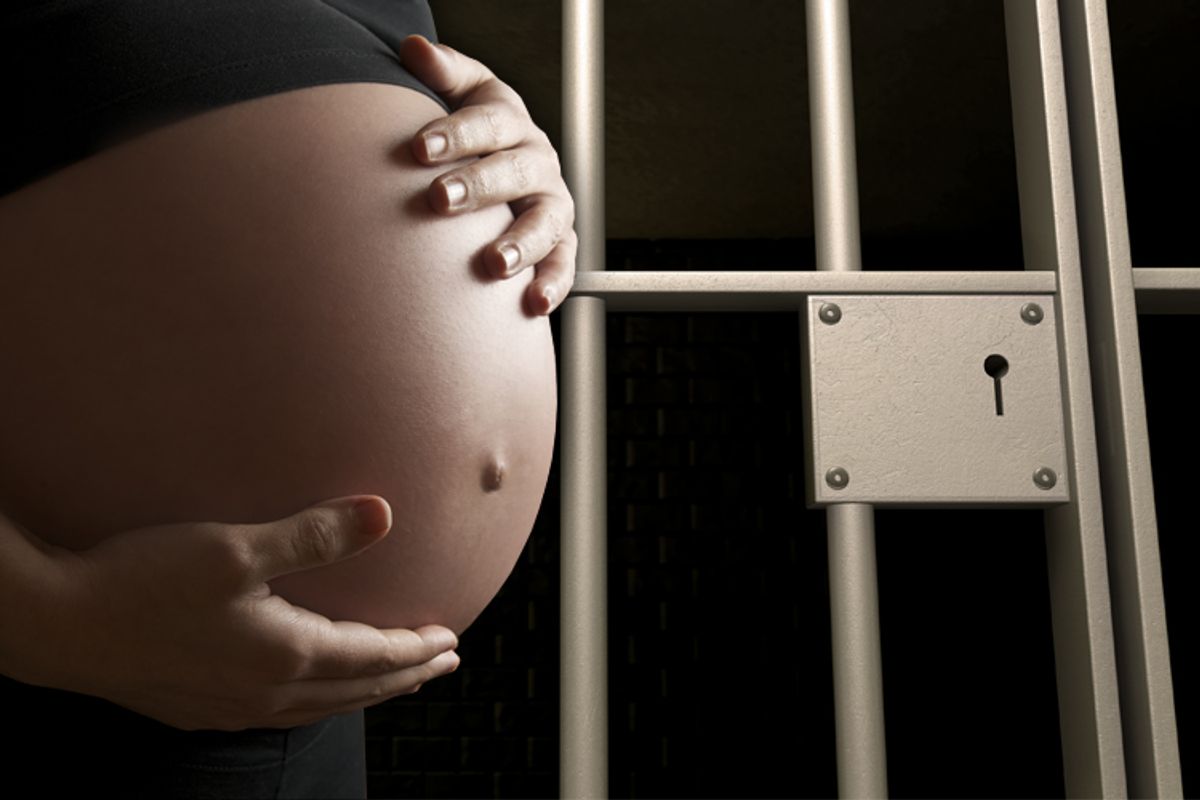The murder charge against a Mississippi woman on trial for giving birth to a stillborn has been dismissed by a Circuit Court judge, according to a report from the Dispatch.
Rennie Gibbs was 16 years old and 36 weeks pregnant when she was admitted to a local emergency room, diagnosed with "fetal demise" and induced to give birth to a stillborn infant, a daughter she would name Samiya. According to experts who would later review her medical record, the most likely cause of death was "umbilical cord compression” -- in plain terms, the umbilical cord had wrapped around the infant's neck.
But Gibbs was charged with "depraved heart murder" after medical examiner Steven Hayne noted that an autopsy test had turned up trace amounts of a "cocaine byproduct" in Samiya’s blood. (No actual cocaine was found in the infant's blood.) Hayne declared Samiya's death a homicide, and Gibbs became the first woman in the state to face the charge of "depraved heart murder" -- an act defined as having a "callus disregard for human life." (For more on how this has unfolded over the last seven years, you should read Nina Martin's excellent reporting on the case.)
But Circuit Court Judge Jim Kitchens this week dismissed the murder charge against Gibbs, noting that the law was unclear on the "appropriate" charge. "Gibbs was indicted prior to [Mississippi Supreme Court case Buckhalter v. State] and the law was unclear in Mississippi as to the appropriate charge, if any, to be levied when a pregnant woman allegedly consumed illegal drugs and allegedly caused the death of her unborn child," Kitchens stated in the ruling.
"Accordingly, pursuant to the Mississippi Supreme Court's ruling this case for depraved heart murder is dismissed without prejudice," he added.
Assistant District Attorney Mark Jackson said the state would re-present the case this summer. "The Lowndes County grand jury initially indicted this case as murder," Jackson said. "At the time, there was nothing in the law that precluded the grand jury from charging Gibbs with murder. The Supreme Court has since decided that murder did not apply based on their interpretation of the statute. Like Judge Kitchens, we are bound to try cases with the parameters set by the Supreme Court. While I don't agree with their opinion, our office will prosecute all cases based on what we believe to be the law at that time."
Gibbs' attorney Carrie Jourdan said she is relieved that the charges have been dropped, but troubled that the state intends to continue to pursue the case.
"Well, first, I believe that Judge Kitchens has summed up the law correctly and accurately and obviously we believe he has done the right thing according to the law," she said. We are incredibly relieved for our client who has been through a great deal. I'm, of course, disappointed that the state is considering a manslaughter case against her. With that possibility looming, I can't say a great deal except we had filed separate motions related to the science and other facts in this case that we found equally compelling."
Gibbs is just one of many women who have been prosecuted under so-called fetal harm laws. As I've previously written at Salon, the criminal prosecution of pregnant people and laws criminalizing pregnancy outcomes -- laws that have, without fail, been disproportionately invoked to criminalize low-income women and women of color -- have been denounced by major medical associations, including the American College of Obstetricians and Gynecologists, the American Society of Addiction Medicine and the American Psychiatric Association.
There is an overwhelming consensus among medical experts and healthcare providers that such laws do not improve health outcomes, and produce a chilling effect that keeps pregnant people from seeking prenatal care or treatment for substance use, often for fear of being reported, detained and jailed. And yet these laws persist. In fact, Tennessee is currently considering a measure that would criminalize pregnancy outcomes.
According to research compiled by the National Advocates for Pregnant Women, between 1973 and 2005, there have been 413 documented cases in which a woman’s pregnancy was a necessary factor in criminal charges brought against her. There have been 200 additional cases documented since 2005.

Shares